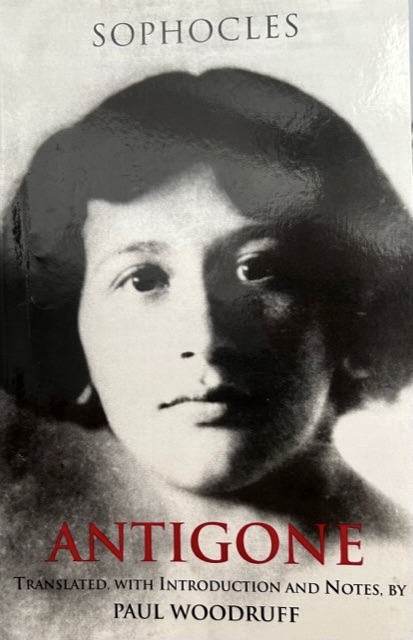Inside Issue 8: New and Forthcoming
Ronald Collins
Commentary
Oppression & the Human Costs of Soccer —
The Qatar World Cup

- See “Qatar World Cup: Last Week Tonight with John Oliver” (HBO) / YouTube (Nov. 21, 2022) (re the appalling exploitation of workers (“modern-day slavery”) that it took to host the Qatar World Cup, see 8:45 minutes into the video).
- “The 2022 World Cup in Qatar has a dark side: Human rights violations, abuse of migrant workers and climate-related health concerns,” Grid (Nov. 18, 2022)
Simone Weil-Related Works
Three Forthcoming Books
- Benjamin P. Davis, Simone Weil’s Political Philosophy: Field Notes from the Margins (Rowman & Littlefield, March 15, 2023)
In this book, Benjamin P. Davis demonstrates how Simone Weil’s Marxism challenges current neoliberal understandings of the self and of human rights. Explaining her related critiques of colonialism and of political parties, it presents Weil as a twentieth-century political philosopher who anticipated and critically responded to the most contemporary political theory.
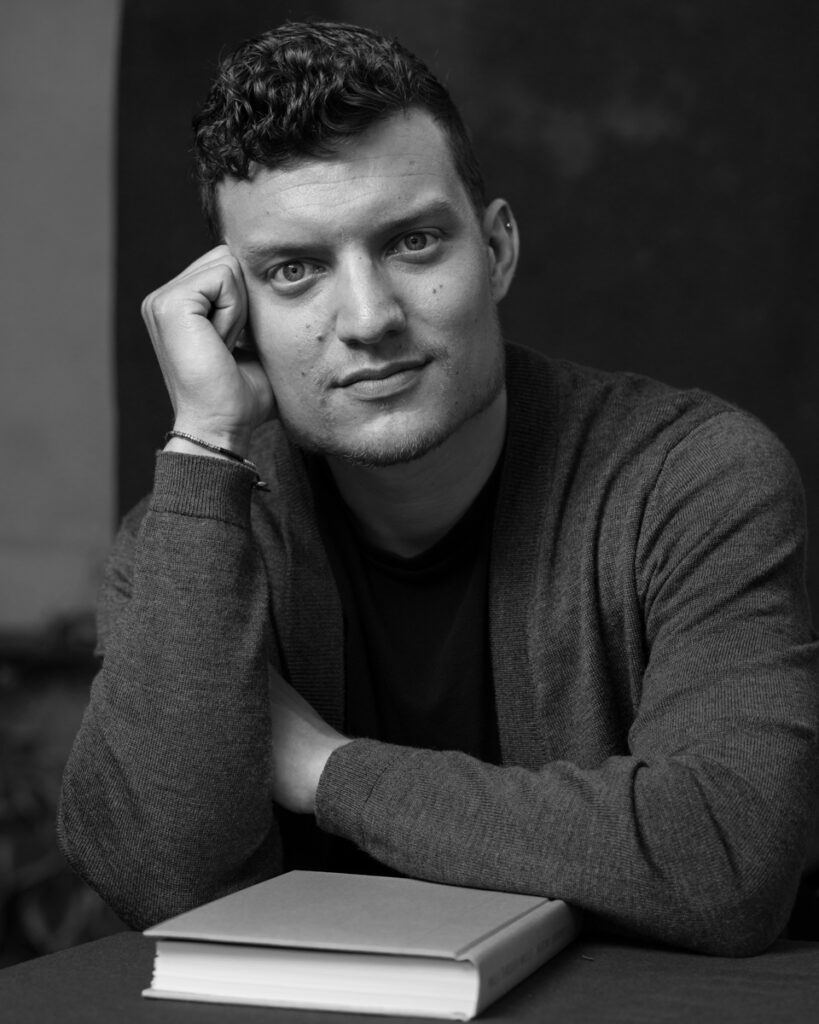
Simone Weil’s short life (1909–1943) is best understood as deeply invested in and engaged with the world around her, one she knew she would leave behind sooner rather than later if she continued to take risks on the side of the oppressed.
In this important and timely book, Davis presents Simone Weil first and foremost as a political philosopher. To do so, he places Weil’s political writings in conversation with feminist philosophy, decolonial philosophy, aesthetic theory, human rights discourse, and Marxism. Against the backdrop of Weil’s commitments, Davis reads Weil explicitly into debates in contemporary Critical Theory. Davis argues that in the battles of today, we urgently need to reconnect with Simone Weil’s ethical and political imagination, which offers a critique of oppression as part of a deeper attention to the world.
- Silvia Caprioglio Panizza & Philip Wilson, eds., Mirror Of Obedience: The Poems And Selected Prose Of Simone Weil (Bloomsbury Academic, August 10, 2023).
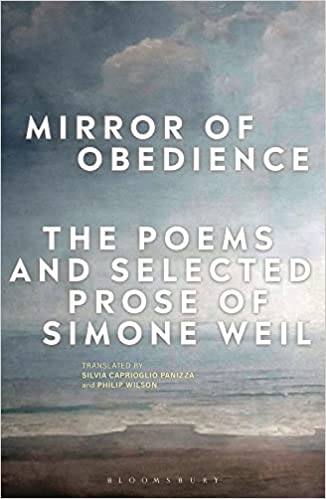
Simone Weil (1909-1943) was one of the foremost French philosophers of the 20th century; a mystic, activist, and writer whose profound work continues to intrigue and inspire today.
Mirror of Obedience collects together Weil’s poetry and autobiographical writings translated into English for the first time. It offers a rare glimpse into a more personal and introspective Weil than we usually encounter. She was writing and re-working her poems until the end of her life and in a letter from London to her parents, dated 22 January 1943, she expressed the wish for her verses to appear together in print in chronological order, a wish which this volume honors.
Weil was a thinker who wrote with discipline and spareness and cherished the poetic form for its power to compress language and distill meaning. In these poems and literary writings, we see her own efforts to craft poems as essential expressions of thought, bringing into view another aspect of Weil’s quest for beauty and truth.
- Wolfram Eilenberger, The Visionaries: Arendt, Beauvoir, Rand, Weil, and the Power of Philosophy in Dark Times (Penguin Press, Aug. 8, 2023)
A soaring intellectual narrative starring the radical, brilliant, and provocative philosophers Simone de Beauvoir, Hannah Arendt, Simone Weil, and Ayn Rand by the critically acclaimed author of Time of the Magicians, Wolfram Eilenberger.
The period from 1933 to 1943 was one of the darkest and most chaotic in human history, as the Second World War unfolded with unthinkable cruelty. It was also a crucial decade in the dramatic, intersecting lives of some of history’s greatest philosophers. In particular, four women whose parallel ideas would come to dominate the twentieth century—at once in necessary dialogue and striking contrast with one another.
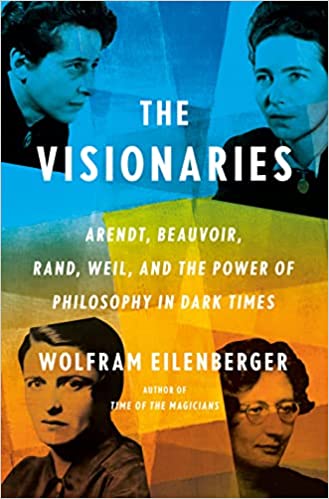
Simone de Beauvoir, already in a deep emotional and intellectual partnership with Jean-Paul Sartre, was laying the foundations for nothing less than the future of feminism. Born Alissa Rosenbaum in St. Petersburg before emigrating to the US in 1926, Ayn Rand was honing one of the most politically influential voices of the 20th century. Her novels The Fountainhead and Atlas Shrugged would reach the hearts and minds of millions of Americans in the decades to come, becoming canonical libertarian texts, which continue to echo today among Silicon Valley’s tech elite.
Hannah Arendt was developing some of today’s most important leftwing ideas, culminating with the publication of The Origins of Totalitarianism and her arrival as a peerless intellectual celebrity. Perhaps the greatest thinker of all was a classmate of de Beauvoir: Simone Weil, who turned away from fame to devote herself entirely to refugee aid and the resistance movement during the war. Ultimately, in 1943, she would starve to death in England, a martyr and true saint in the eyes of many.
Few authors can synthesize gripping storytelling with sophisticated philosophy like Wolfram Eilenberger. The Visionaries tells the story of four singular philosophers—indomitable women who were refugees and resistance fighters—each putting forward a vision of a truly free and open society at a time of authoritarianism and war.
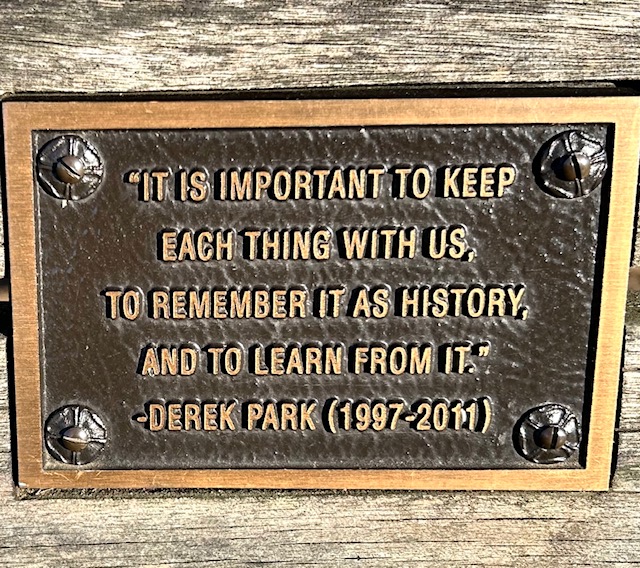
Recently Published book on Mathematics . . . and André and Simone
- Francis Edward Su, Mathematics for Human Flourishing (Yale University Press, 2021 paperback)
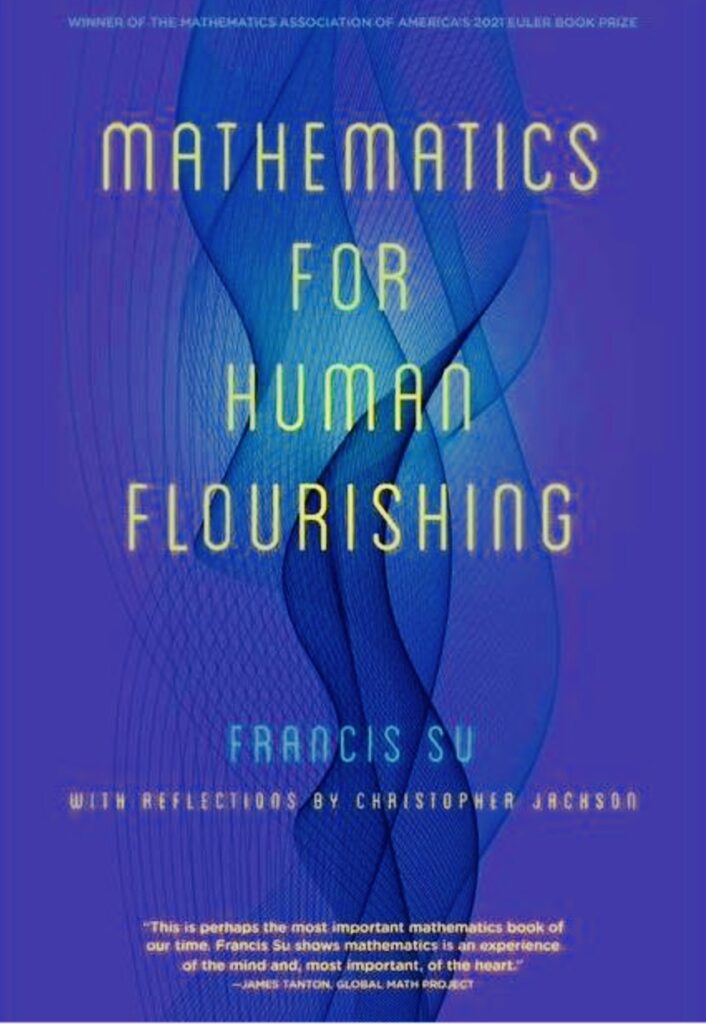
“This is perhaps the most important mathematics book of our time. Francis Su shows mathematics is an experience of the mind and, most important, of the heart.”—James Tanton, Global Math Project
For mathematician Francis Su, a society without mathematical affection is like a city without concerts, parks, or museums. To miss out on mathematics is to live without experiencing some of humanity’s most beautiful ideas.
In this profound book, written for a wide audience but especially for those disenchanted by their past experiences, an award‑winning mathematician and educator weaves parables, puzzles, and personal reflections to show how mathematics meets basic human desires—such as for play, beauty, freedom, justice, and love—and cultivates virtues essential for human flourishing. These desires and virtues, and the stories told here, reveal how mathematics is intimately tied to being human. Some lessons emerge from those who have struggled, including philosopher Simone Weil, whose own mathematical contributions were overshadowed by her brother’s, and Christopher Jackson, who discovered mathematics as an inmate in a federal prison. Christopher’s letters to the author appear throughout the book and show how this intellectual pursuit can—and must—be open to all.
Three New Books From Abroad
- Iolanda Poma, Simone Weil: Per una decostruzione religiosa del soggetto moderno (Italian edition: Mimesis Edizioni, Oct. 14, 2022) (Simone Weil: For a religious deconstruction of the modern subject)
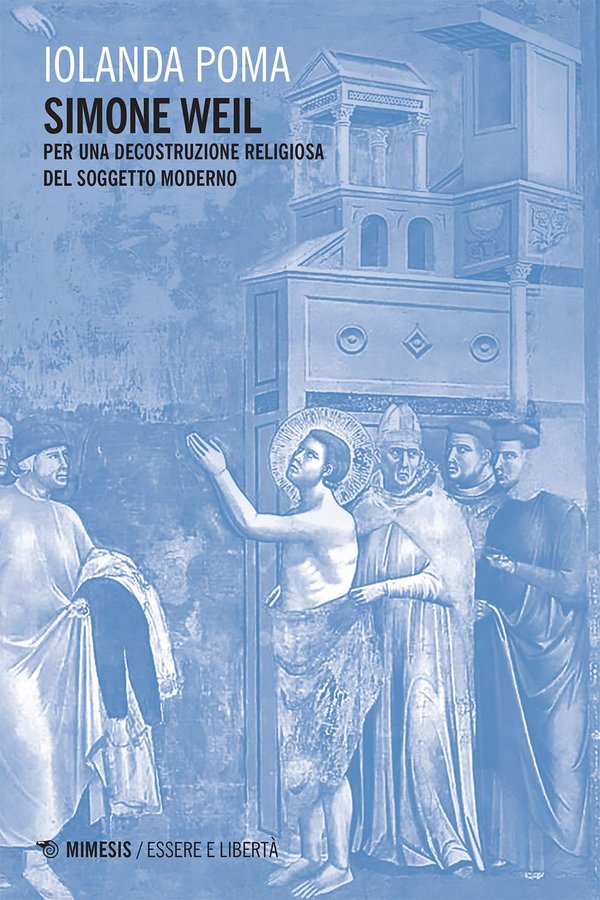
Simone Weil traces in authentic religiosity – which is concrete, lived and practiced spirituality – that paradoxical logic capable of destabilizing every form of human power and countering its tendency to occupy the center of reality. Weil thus carries out a deconstructive process of hypertrophic subjectivity, attacking the forms of self-deception of which she identifies the false idols and goes back to the meaning of her original sin. In this process, there remains the possibility, unfulfilled and awaited, of her authentic bond with the supernatural. The result is a different understanding of the history of subjectivity and therefore of its potential: an alternative path of regeneration, for another history that never ceases to merge, intertwining, in the first. Weil, therefore, delves into the story of the events of the ego, to bring out the otherwise contained therein and which concerns the sacred meaning of the human being in his relationship with the good.
- Noemí Sanches, From silence to speech: The ontology of language in Simone Weil (Editorial Ciudad Nueva (September 15, 2022, 502 pp.)
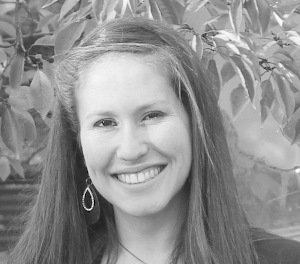
“Relevant is the criticism that attests to a certain prominence of silence in Simone Weil’s philosophical meditation, both in content and in form. Based on this premise, Dr. Noemí Sanches proposes an attempt at a global reading (without pretending to be exhaustive) of this category throughout the almost 18 years of the intellectual production of the French philosopher. In its own particular way, this book highlights Weil’s essential link with language, whose origin and ultimate foundation is sealed in that relational silence of Being, from where the Father utters ab aeterno his only Word of love.”
Children’s Book
- Anne Waeles (author) & magali dulain (Illustrator), Simone Weil au royaume des Oublieux (Petits Platons, May 2022) (Simone Weil in the Kingdom of the Forgetful) — English translation of abstract below:
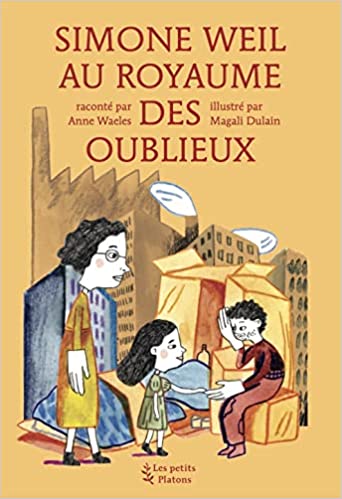
At the heart of The Kingdom of the Forgotten, two opposing clans live separately: the Heads, responsible for thinking, and the Hands, responsible for executing. One day, the Hands declare the strike. Intrigued, the young Princess Amal then leaves Tête-Ville to go to the Plaine des Mains. Along the way, she meets the philosopher Simone Weil alongside whom she will discover the alienating world of work and learn how to exercise her attention. Pursued by the Brigade la Gomme which erases everything in its path, they will have to show ingenuity and malice in order to put an end to the segregation between Heads and Hands. This tale is an opportunity for young readers from the age of 9 to become familiar with the social issues of work, to question thought and action. Simone Weil in the Kingdom of the Forgotten will awaken children to the challenges of the humanist thought of the philosopher, burning topicality.
Forthcoming Literary Fiction
- Lars Iyer, My Weil (Penguin, Aug. 22, 2023)
My Weil follows a group of twenty-something Ph.D. students of the new-fangled subject of Disaster Studies at an inferior university in Manchester, England, the post-industrial city of so much great music and culture. They’re working class, by turns underconfident and grandiose (especially when they drink), and are reconciled to never finishing their dissertations or finding academic jobs.
Their immediate enemies are the drone-like Business Studies students all around them, as well as the assured and serene Ph.D. students of the posh university up the road. And they’re working together on a film, through which they’re trying to make sense of their lives in Manchester and, in particular, to the Ees, a mysterious patch of the countryside that appears to have supernatural qualities.
Into their midst arrives Simone Weil, a Ph.D. student, a version of the twentieth-century philosopher, who becomes the unlikely star of their film. Simone is devout, ascetic, intensely serious, and busy with risky charity work with the homeless. Valentine, hustler-philosopher, recognizes Simone as a fellow would-be saint. But Gita, an Indian posh girl, is suspicious: what’s with Simone’s nun shoes? And Marcie (AKA Den Mom), the leader of the pack, is too busy with her current infatuation, nicknamed Ultimate Destruction Girl, to notice.
The narrator, Donny, who was brought up in care and is psychologically fragile, and deeply disturbed by the poverty of his adopted city, gradually falls in love with Simone. But will his love be requited? Will Simone be able to save the souls of her new friends and Manchester itself from the apocalypse?
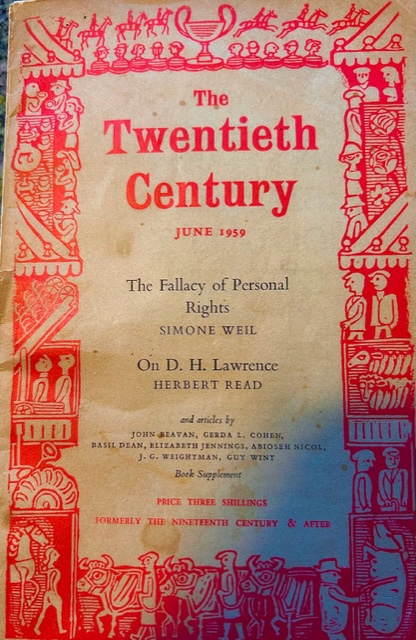
Coming Next Issue: 1988 Simone Deitz Video
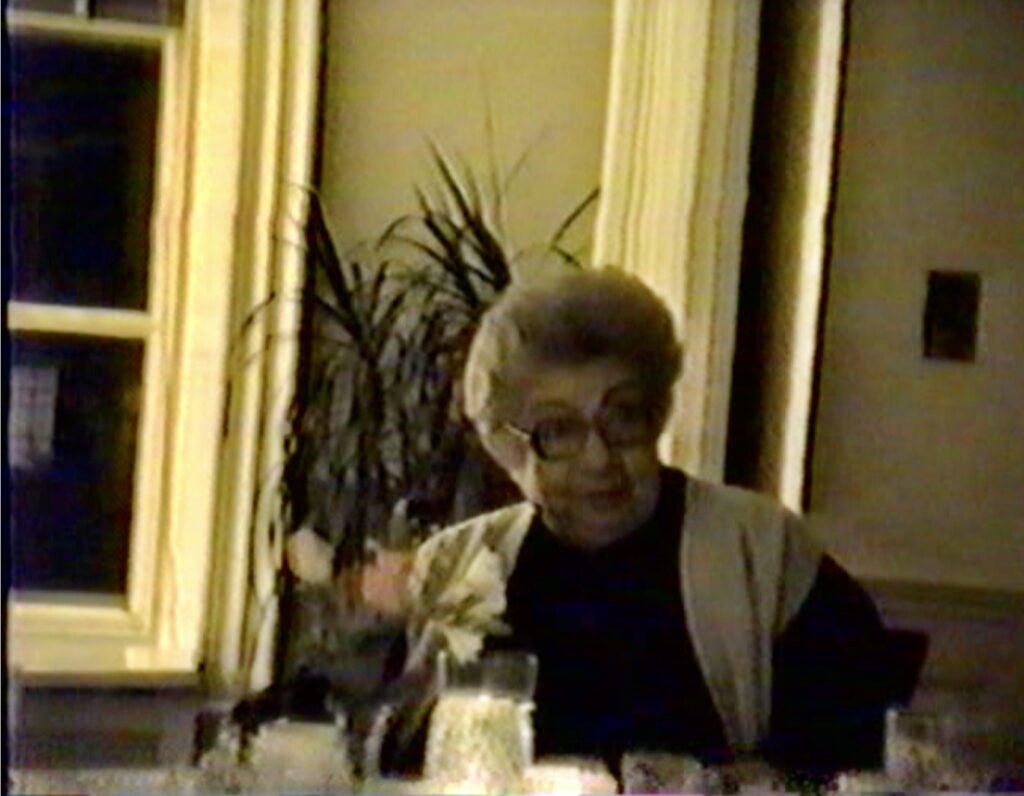
On April 30, 1988, Simone Deitz participated in an exchange at Harvard University hosted by the American Weil Society. Some of those present were Martin Andic and Diogenes Allen (two noted Weil scholars). The exchange was video-recorded by Eric Sprinsted who retained a copy, which will be posted on YouTube and highlighted in the next issue.
Deitz was a friend of Simone Weil’s. See Jacques Cabaud, Simone Weil (1964), pp. 276, 279-281, 325-327, 339-340, 342, 346, 348. See also Jacques Cabaud, “The Reluctant Witness: A Few Recollections of Simone Deitz and Related Matters,” Attention (April 2022).
Simone Weil Catholic Worker Newsletter


“Beginnings are Always Exciting”
— Emma Coley
Beginnings are always exciting. This is how Dorothy concludes the first chapter of Loaves and Fishes, her account of the early years of the Catholic Worker. It is a phrase that frequently goes through my mind these days– talking with new friends after Wednesday and Friday dinners, renovating a tiny house for a new guest, writing this reflection for our new newsletter (hopefully coming out biweekly), and looking at the goal-setting post-it notes from my first weeks here that still hang on our office wall.
We see a lot of ourselves in these early chapters as a barely three-year-old community still experiencing our own growing pains. One of the great challenges and joys of this work is the opportunity to begin again, and again, and again.
We’ve welcomed a new live-in volunteer–Katherine–who is perhaps aptly described with Dorothy’s own words: “a serious young college student whose commitment to the intellectual life means her ideas may overflow into action.” Just last week, we welcomed in our first new resident in a couple months, making us now a community of nine: Bert, S, Emma, Don, Jim, Katherine, T, Ashby, and Marie. This week, we hosted our first days of “living room hours,” with the intention of inviting folks who aren’t live-in community members to share our community space, meals, and prayer with greater openness and regularity throughout the week. We are just starting Week 9 of our latest “agronomic university” project–reading and praying through the whole of Scripture–and received our landlord’s permission to prepare to farm our Dorothy Day House backyard. We’ve consistently hosted “communion economy” brunches at our parish after the 10 am mass, and guest teachers led our first “home economy” workshops on canning and clothing repair. . . .
New Essay from Abroad (Spain)
The essay ‘La Columna’ delves into the disappointment of the young French thinker, who spent a few weeks with Durruti’s militiamen.
This essay by Adrien Bosc (winner of the 2014 Grand Prix du Roman de l’Académie Français) and published in Spain by Tusquets, revolves around that mysterious letter that was disclosed and defended by Albert Camus in 1954. Bosc reconstructs the 45 days that Simone Weil spent in Spain, just after the war began and for which she has used, among other documents, the 34 Moleskine pages that the philosopher filled out as a diary. That month and a half in a morally crumbling country would decisively affect her convictions about the war.
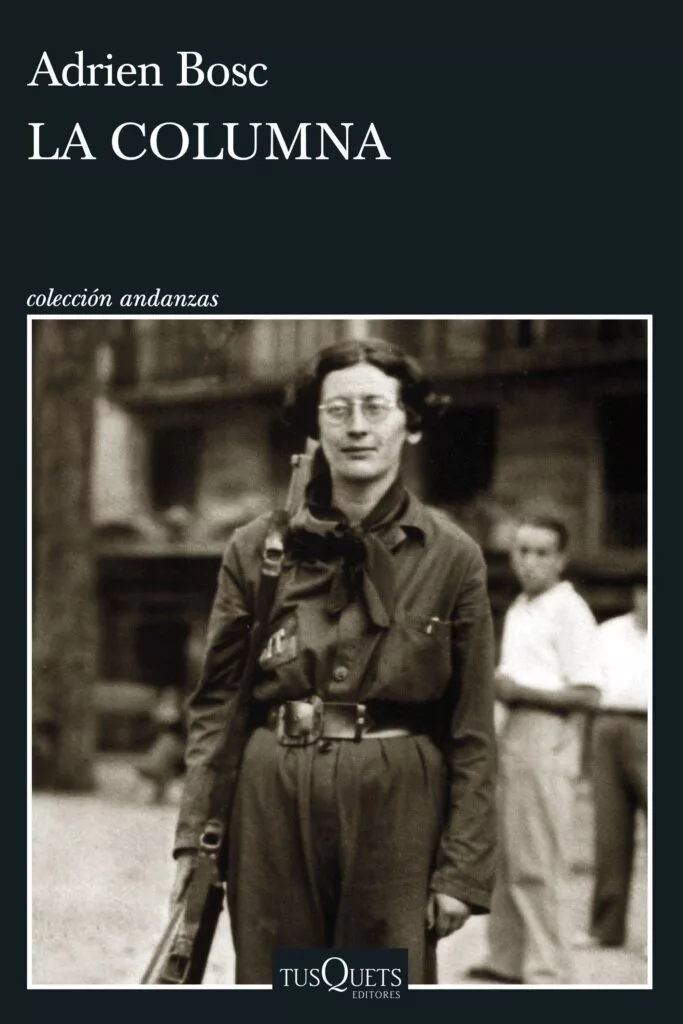
Weil crossed the border in Portbou (where Walter Benjamin would die a few years later) with the seal of the Generalitat. “She had always considered herself a pacifist, someone incapable of wearing a uniform and holding a rifle, but two days before, at the end of a meeting in support of the Spanish republicans, she decided that she would go to fight,” Bosc narrates. The young woman was very capable of this type of idealistic, messianic resolution: that same need to get involved had prompted her to take a break from her teaching position and join the Renault factory between 1934 and 1935 as a worker. In Barcelona, Weil contacted the CNT , the FAI and the POUM. She feels exultant: “Power has passed to the people,” she writes. From those days she dates the famous photograph of her in mechanic’s overalls and a rifle on her shoulder. Later, along with foreigners of different nationalities, she would join the International Group of the Durruti Column. With them, she would converge on the terrible line of the Ebro. . . .
Related
- Sergio del Molino, “Cuando Simone Weil luchó en la guerra civil y escribió una carta a Georges Bernanos,” Oonda Cero (Nov. 28, 2022) (“When Simone Weil fought in the civil war and wrote a letter to Georges Bernanos”) (“With Sergio del Molino we talked about the book ‘La columna’, by the French Adrien Bosc, which recounts the experience of Simone Weil in the Spanish civil war, who joined the Republicans in the Durruti Column. How did the war change Weil’s gaze forever? What were the reactions of the French left when learning that Weil wrote a letter to Georges Bernanos, its ideological antagonist? We talked about the legacy of the philosopher who tried to compensate for her belonging to the privileged class by writing works of commitment to the working class and the most disadvantaged. How has Weil become a philosophical reference in the current panorama whose figure does not stop growing?”)
Newly Noted BBC Audio Exchanges
- “Simone Weil In Our Time,” BBC Radio 4 (posted: 2018) (with David Levy, among others)
- “In Our Time: S15/10 Simone Weil” (Nov. 15, 2012) (Melvyn Bragg and Beatrice Han-Pile, Professor of Philosophy at the University of Essex, Stephen Plant, Runcie Fellow and Dean of Trinity Hall at the University of Cambridge; and David Levy, Teaching Fellow in the Department of Philosophy at the University of Edinburgh)
Two New Podcasts
- “Five Questions”: Kieran Setiya asks philosopher Palle Yourgrau five questions about himself.
- “Simone Weil – Attention,” Philosophize This! (episode #172, Nov. 23, 2022).
Five New Articles

- Aviad Heifetz, “From Innate Morality Towards a New Political Ethos: Simone Weil with Carol Gilligan and Judith Butler,” Ethics, Politics & Society (Nov. 2021)
- Peter Roberts, “Education and the Ethics of Attention: The Work of Simone Weil,” British Journal of Educational Studies (Aug. 22, 2022)
- A Murad Merican, “Politics without political parties,” New Straits Times (Nov. 16, 2022).
- Alejandra Oliva, “Knitting with Simone Weil,” The Christian Century (Nov. 16, 2022).
- Piergiacomo Severini, “Oblique Paths to Truth – Myth and Bodily Elements in Simone Weil, Jeanne Hersch and María Zambrano,” Journal of the History of Women Philosophers and Scientists (Nov. 3, 2022).
Forthcoming Essay
- Anna Kelner, “Medieval Mysticism and the Making of Simone Weil” in R.D. Perry & Benjamin A. Saltzman, eds, Thinking of the Medieval Midcentury Intellectuals and the Middle Ages (Cambridge University Press, 2023), pp. 239-254.
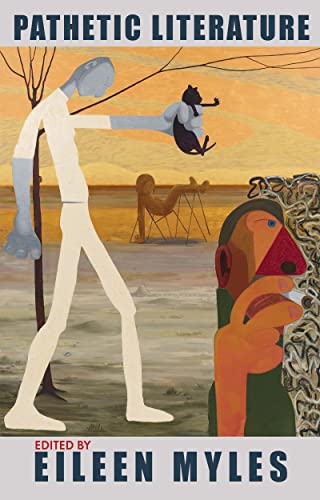
New Anthology with Weil Letter
- Simone Weil, “Letter 1: Hesitations Concerning Baptism,” in Eileen Myles, ed., Pathetic Literature: An Anthology (Grove Press, 2022) (“An utterly unique collection composed by the award-winning poet and writer, a global anthology of pieces from lesser-known classics by luminaries like Franz Kafka, Simone Weil, Samuel R. Delany, and Gwendolyn Brooks to up-and-coming writers that examine pathos and feeling, giving a well-timed rehab to the word ‘pathetic.'”)
Aside: Simone & Antigone
